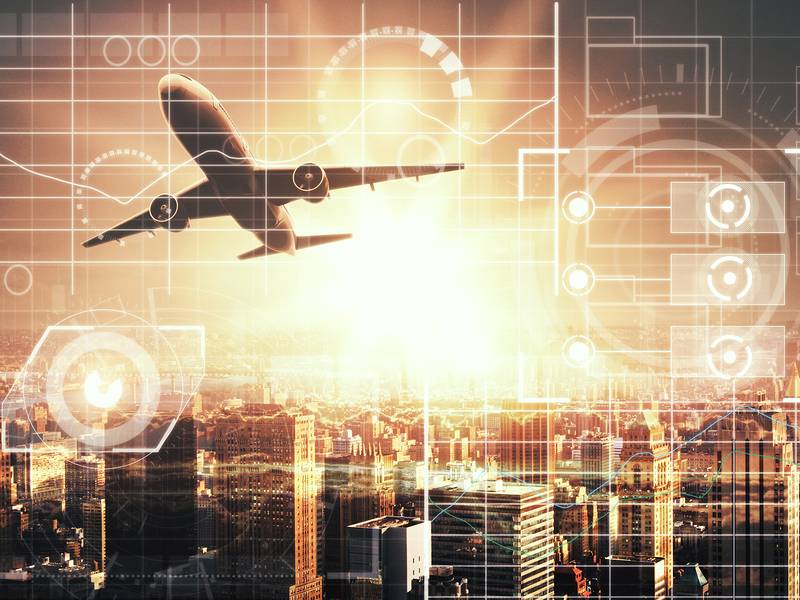IATA Believes Data will Help Resume Travel

The International Air Transport Association (IATA) urged governments to make data-driven decisions to manage the risks of COVID-19 when reopening borders to international travel. Strategies without quarantine measures can enable international travel to restart with a low risk of introduction of COVID-19 to the travel destination.
“Data can and should drive policies on restarting global travel that manage COVID-19 risks to protect populations, revive livelihoods and boost economies. We call on the G7 governments meeting later this month to agree on the use of data to safely plan and coordinate the return of the freedom to travel which is so important to people, livelihoods and businesses,” said Willie Walsh, IATA’s Director General.
Vaccinated Travelers
Evidence continues to show that vaccination protects travelers from serious illness and death, and carries a low risk of introducing the virus into destination countries:
- The Robert Koch Institute (RKI) concluded that vaccinated travelers are no longer significant in the spread of the disease and do not pose a major risk to the German population.
- The European Centre for Disease Control and Prevention (ECDC) issued interim guidance on the benefits of full vaccination stating that “the likelihood of an infected vaccinated person transmitting the disease is currently assessed to be very low to low.”
- The US Centers for Disease Control and Prevention (US CDC) stated that “with a 90% effective vaccine, pre-travel testing, post-travel testing, and 7-day self-quarantine provide minimal additional benefit.”
- The Canadian Testing and Screening Expert Advisory Panel recommends that vaccinated travelers do not need to be quarantined.
- A Public Health England study has concluded that two doses of the COVID-19 vaccines are highly effective against COVID-19 variants of concern.
Testing for Unvaccinated Travelers
A challenge is the potential of barriers to travel for unvaccinated people which would create an unacceptable exclusion. Data from the UK NHS regarding international travelers arriving in the UK (with no reference to vaccination status) shows that the vast majority of travelers pose no risk for the introduction of COVID-19 cases after arrival.
- Between 25 February and 5 May 2021, 365,895 tests were conducted on arriving passengers to the UK. These were PCR negative before travel. Only 2.2% tested positive for COVID-19 infection during universal quarantine measures after their arrival. Of these, over half were from “red list” countries, which were considered very high risk. Removing them from the statistics would result in test positivity of 1.46%.
- Of the 103,473 arrivals from the EU (excluding Ireland), 1.35% tested positive. Three countries, Bulgaria, Poland and Romania, accounted for 60% of the positive cases.
“Many governments continue to require universal quarantine—either hotel-managed or self-managed. This impedes the freedom of movement, discourages international travel and destroys employment in the travel and tourism sector. Data from the UK tells us that we can and must do better. Almost 98% of those detained because of universal quarantine measures tested negative for the virus. We now have more than a year of global data that can help governments make more targeted decisions on international travel. This can keep the risk of importing COVID-19 cases low—including variants of concern—while restarting international travel with minimal infringement on the ability to live normal work and social lives. Importantly, lives that include travel,” said Walsh.
IATA teamed-up with Airbus and Boeing to demonstrate potential methodologies to manage the risks of COVID-19 to keep populations safe while restarting global connectivity. Aviation, including manufacturers, effectively manages and mitigates risk every day to keep air travel safe. Using these skills, Airbus and Boeing have developed data-driven risk-management models to understand the impact of various options.
Airbus Modeled Whole Journey Risk
Focusing on risks across the whole journey, Airbus considered more than 50 variables (such as number of confirmed cases and fatalities per country, COVID-19 testing strategies, traffic statistics, flight length, time spent in airport terminals, provision of on-board catering and air conditioning) in its model. Assumptions for the model are based on over a dozen data sources (including US CDC and the World Health Organization). And results of the model were cross referenced against data collections from actual results and observations from travel. Using current COVID-19 incidence data and not making any consideration for vaccinated travelers (which would only lower the risk of infections), example findings include:
- High to medium incidence - Latin America & Caribbean (292 cases/100,000 population) to Canada (95 cases/100,000 population): Assuming the same traffic as in 2019 and without any testing, we expect that the local incidence in Canada would increase by just over 1 case / 100,000 population due to the imported cases over 14 days. With a single PCR test before travel, this number falls to less than 1 case/100,000 population.
- Medium to medium incidence - Europe (111 cases/100,000 population) to US (81 cases/100,000 population): Assuming the same traffic as in pre-COVID-19 and without any testing, the Airbus model predicts that air travel over 14 days would add less than 1 imported case/100,000 population to the local incidence in the US.
- Medium to low incidence - Europe (111 cases of COVID-19/100,000 population) to Singapore (8 cases/100,000 population): Conservatively assuming the same traffic as in 2019 and without any testing, we predict that over 14 days air travel would add over 1 imported case/100,000 population to the local incidence in Singapore. With a PCR test before travel, this number falls to less than 1.
The Airbus model - designed to support government stakeholders to reopen air travel—demonstrates that the risk of virus transmission and translocation can be significantly reduced by adopting data-driven screening and protection measures.

Boeing Modeled the Efficacy of Testing Strategies
Boeing modeling and analysis shows screening protocols offer an alternative to mandatory quarantines for many travel scenarios. The model evaluates the effectiveness of passenger screenings and quarantines in countries around the world. It accounts for various factors including COVID-19 prevalence rates between origin and destination countries, the efficacy of PCR and rapid antigen tests, and the disease timeline (how the disease progresses) for passengers traveling with COVID-19.
The modeling revealed several key findings:
- Data show there are screening protocols (noted below) as effective as a 14-day quarantine
- Screening protocols lower the risk to the destination country
- Screening is most beneficial for travel from higher to lower prevalence areas
The passenger screening model and findings were validated using actual travel testing data from Iceland and Canada. Boeing is now modeling scenarios with vaccinated travelers. As data on new COVID-19 variants becomes available, it will also be incorporated in the model.
Data-Driven Decisions
“There is no one-size-fits-all solution to manage the various levels of risk. The economic and social cost of the blanket measures taken by most governments to date has been unnecessarily high. With this modeling, we are demonstrating that we can be smart with calibrated travel policies that address the risks, enable travel, and protect people. Everybody can respect a data-driven decision. That is the way back to normality,” said Walsh.
No single government action can drive a recovery for international travel. The G20 Tourism Ministers endorsed a data-driven approach to reopening borders. The aviation industry is encouraging the G7 to take leadership by agreeing to work together to use the enormous amounts of data collected since the start of COVID-19 to drive a recovery effort. Critically that must restore the freedom to travel for tested or vaccinated persons while avoiding quarantine measures for the vast majority of travelers.
Cooperation to Protect the Healthcare System
Industry risk-management expertise can help the public health sector manage a return toward normality.
“COVID-19 is something that we need to learn to manage, like we do other risks to health. We accept many things in society that we know come with risks—from consuming alcoholic beverages to how we drive. We don’t ban these activities. We have some common-sense rules and the information needed to make sensible decisions about how to manage these risks. The post-pandemic future means doing the same for COVID-19 so we can all get on with our lives. There is no completely risk-free protocol. Vaccination will play a big role. And the data we have tells us that screening and testing protocols can make travel safely accessible for all,” said Walsh.
“Government policies are naturally risk averse. By contrast, the private sector has great experience in managing risks every day to deliver its products and services. COVID-19 now appears to be becoming endemic. This means that COVID-19 is not likely to disappear anytime soon, so governments and industry must work together to rebuild global connectivity while managing the associated risks. The first step is for governments to evaluate the threshold of risk of virus introduction that they can effectively manage. Then they need to identify with industry feasible strategies to enable an increase in international travel without exceeding those thresholds. Airbus, Boeing and IATA have demonstrated some possible solutions. Now we need more intense and transparent dialogue between governments and the airline industry to move from models to policy and ultimately facilitate international travel,” said Professor David Heymann of the London School of Hygiene and Tropical Medicine.
Other Articles
About Us
Supported by the Union of International Associations (UIA), the International Association of Professional Congress Organisers (IAPCO) and the Interel Group, the global public affairs and association management consultancy, Headquarters Magazines serve the needs of international associations organising worldwide congresses.














